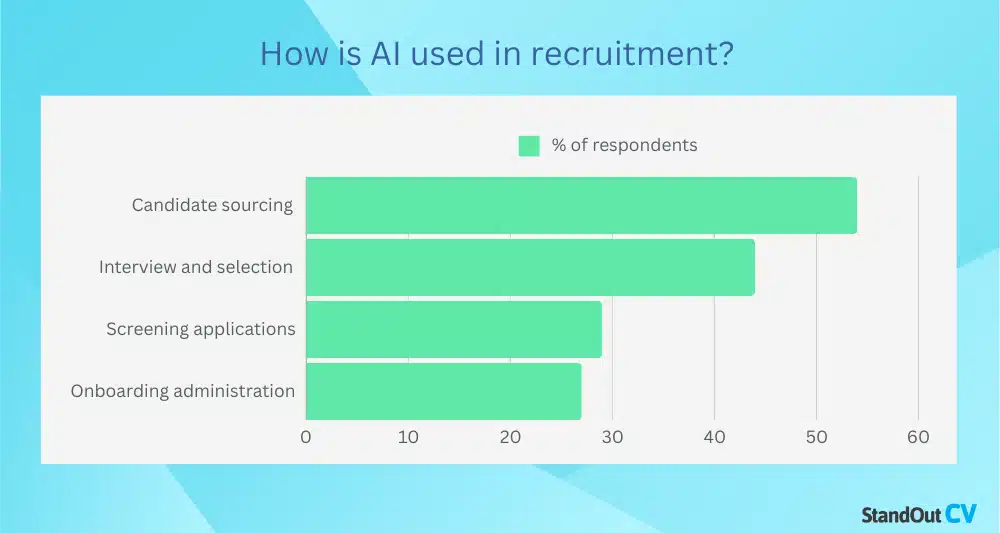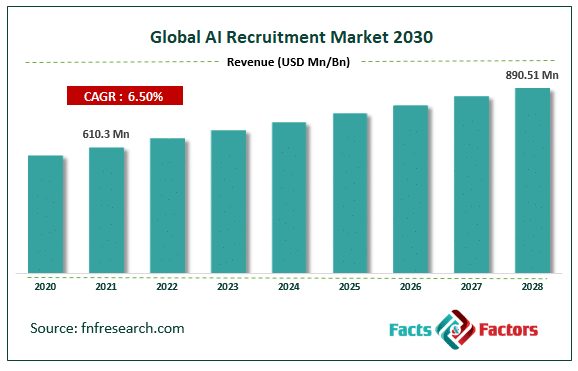Key Insights About How AI Is Transforming The Hiring Landscape

The Traditional Hiring Bottleneck
For decades, recruitment teams have struggled with an overwhelming paradox. While unemployment remains a concern in many regions, employers simultaneously report difficulty finding qualified candidates.
The traditional hiring process faces several critical challenges:
- Time Constraints: HR professionals spend only six to eight seconds reviewing each application, creating bottlenecks when facing hundreds or thousands of candidates
- Manual Inefficiency: Traditional screening methods cause significant delays, potential oversights, and exhaustion among hiring teams
- Unconscious Bias: Identical resumes with different names suggesting different genders, ethnicities, or ages receive vastly different response rates
- Missed Opportunities: These systemic issues hinder diversity efforts and cause companies to overlook exceptional talent.
Let’s solve your ngo problem together

The AI Revolution in Recruitment
Enter artificial intelligence. Modern AI screening systems leverage natural language processing, machine learning algorithms, and predictive analytics to revolutionize every stage of the hiring funnel. These technologies can parse through thousands of applications in minutes, identifying candidates whose skills, experiences, and potential align with job requirements.
Key Capabilities of AI Screening Tools:
- Advanced Analysis: Move beyond basic keyword matching to evaluate competencies, career progression patterns, and educational backgrounds
- Video Interview Assessment: Analyze verbal responses, communication styles, and problem-solving approaches for comprehensive candidate profiles
- Cultural Fit Prediction: Use data-driven insights to assess alignment with organizational values and team dynamics
- Rapid Processing: Complete in days or hours what once took recruitment teams weeks
- Improved Candidate Experience: Provide faster responses, reducing job search anxiety and uncertainty

Global Adoption and Regional Variations
The adoption of AI screening varies significantly across global markets. North America and Western Europe have been early adopters, with technology companies, financial institutions, and large corporations leading the charge. In these regions, AI screening has become standard practice for high-volume hiring, particularly for entry-level and mid-level positions.
Asia-Pacific markets, particularly India, China, and Southeast Asian nations, are experiencing rapid AI screening adoption driven by massive talent pools and competitive job markets. These regions face unique challenges including language diversity and varying educational systems, pushing AI developers to create more sophisticated localization features.
Emerging markets in Latin America, Africa, and Eastern Europe are increasingly embracing these technologies as remote work normalizes and companies seek global talent. However, infrastructure challenges and digital literacy gaps create adoption barriers that more developed markets don’t face.


Addressing Bias: Promise and Pitfalls
One of AI screening’s most compelling promises is bias reduction. Algorithms can be programmed to ignore demographic information, focusing purely on qualifications and potential. Some systems even use “blind screening” techniques, removing names, photos, and other identifying information that might trigger unconscious bias.
However, AI is not inherently neutral. Algorithms trained on historical hiring data can perpetuate existing biases, leading to discriminatory outcomes. Several high-profile cases have revealed AI systems favoring certain demographics because they reflected patterns in past hiring decisions. For instance, if a company historically hired predominantly from specific universities or backgrounds, AI might learn to favor similar candidates.
This challenge has sparked important conversations about algorithmic transparency, ethical AI development, and regulatory oversight. Progressive organizations now audit their AI screening tools regularly, ensuring they promote rather than hinder diversity objectives. The European Union’s AI Act and similar regulations worldwide are establishing frameworks for accountable AI use in hiring.

Enhancing Candidate Experience
Beyond efficiency and bias reduction, AI screening is transforming candidate experience in meaningful ways:
- Instant Communication: Chatbots provide immediate responses to applicant questions 24/7
- Automated Scheduling: Eliminate time-consuming back-and-forth emails for interview coordination
- Personalized Feedback: AI-powered systems offer tailored insights even to rejected candidates
- Gamified Assessments: Interactive simulations evaluate skills in realistic scenarios, making testing more engaging
- Transparent Process: Candidates receive clearer pictures of job responsibilities and expectations
These improvements matter in competitive talent markets where candidate experience directly impacts employer branding. Job seekers increasingly share their application experiences on platforms like Glassdoor, making positive recruitment interactions a competitive advantage.

The Human-AI Partnership
Despite AI’s growing capabilities, the most successful organizations recognize that technology should augment rather than replace human judgment. AI excels at initial screening and pattern recognition, but humans remain essential for evaluating cultural nuance, leadership potential, and complex interpersonal skills.
The future of hiring lies in intelligent collaboration between AI systems and human recruiters. AI handles repetitive tasks and initial filtering, freeing HR professionals to focus on relationship building, strategic talent planning, and final selection decisions requiring emotional intelligence and contextual understanding.
Looking Ahead
As AI screening technology matures, we can expect even more sophisticated capabilities:
- Enhanced Predictive Analytics: Better forecast candidate success, performance, and long-term retention
- Advanced Natural Language Processing: Conduct preliminary interviews with remarkable nuance and understanding
- Seamless Integration: Connect with broader HR systems for smooth transitions from candidate to employee
Personalized Career Matching: Use AI to suggest optimal roles based on skills, aspirations, and market trends
Conclusion: The Revolution is Here
However, this future demands vigilance. Organizations must balance efficiency with fairness, innovation with privacy protection, and automation with human touch. The companies that successfully navigate these tensions will gain significant competitive advantages in attracting and retaining top talent.
AI screening is not merely a technological upgrade—it represents a fundamental reimagining of how we connect talent with opportunity. As this transformation accelerates globally, it promises to make hiring more efficient, equitable, and effective than ever before, reshaping the future of work for employers and job seekers alike.
Bigpage can help you to grow your business digitally through well-defined website content, building a dynamic website for you to enhance your online presence and get more clients through various Facebook, Instagram Ads

Agrodut is a managing director and seasoned digital marketing specialist passionate about SEO. With 15 years of experience, he has helped numerous businesses elevate their online presence and achieve higher search engine rankings. A results-driven professional, Agrodut Mondal stays updated with the latest SEO trends and best practices to ensure cutting-edge strategies. When not optimising websites, he enjoys exploring new technology and sharing insights through writing and speaking engagements. Connect with Agrodut for expert guidance on unlocking your website’s full potential in the digital.


